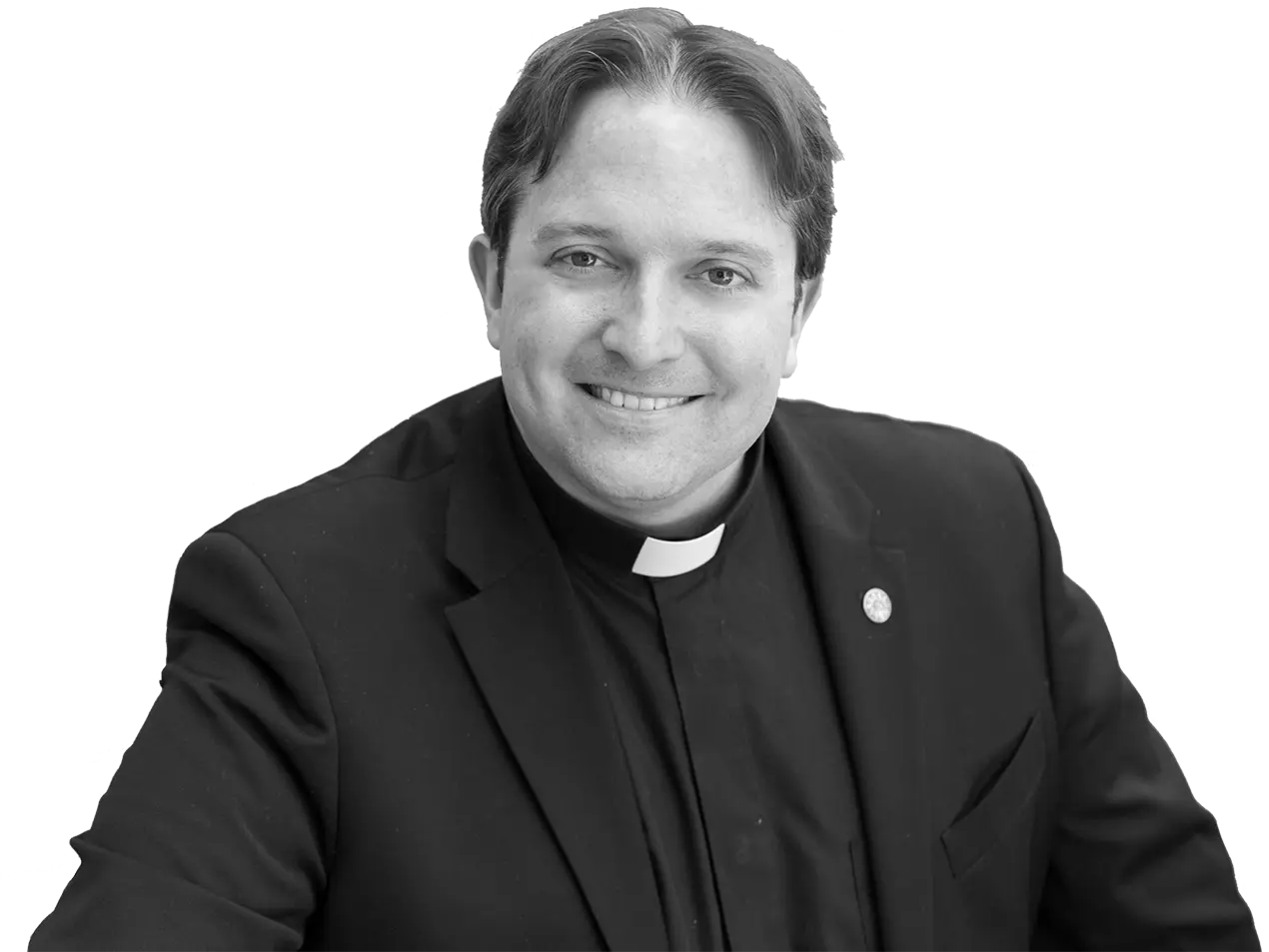 Fr Matthew Charlesworth SJJesuit PriestSociety of JesusJesuit priest working in Southern AfricaFr. MatthewCharlesworthSJ
Fr Matthew Charlesworth SJJesuit PriestSociety of JesusJesuit priest working in Southern AfricaFr. MatthewCharlesworthSJ
 3rd Sunday of Advent
3rd Sunday of Advent
Date: | Season: Advent | Year: A
First Reading: Isaiah 35:1–6a, 10
Responsorial Psalm: Psalm 146:6–10
| Response: Isaiah 35:4
Second Reading: James 5:7–10
Gospel Acclamation: Isaiah 61:1
Gospel Reading: Matthew 11:2–11
Preached at: the Holy Trinity Catholic Church in Braamfontein in the Archdiocese of Johannesburg, South Africa.
We might be forgiven this evening for being a little confused about today’s Gospel. It begins with John trying to ascertain what type of messiah Jesus was. Last week’s Gospel happened just before John baptized Jesus. So you would have thought that since he was present at the Baptism and saw the Holy Spirit descend upon him and God speak from heaven saying “This is my Son, the beloved, with whom I am well pleased.” that that would have been enough. But here in tonight’s Gospel we see John the Baptist being told that Jesus is the Messiah – the Son of God – but that this messiah is unlike what was expected.
How often do we experience disappointment in our lives because our expectations are not satisfied. Quite often we would want that God is made in our image and likeness – that he does what we want and considers things as we would consider them. But we know that we are made in God’s image and likeness and that very often we are the ones at fault for not seeing the world, for not loving the world, for not living in the world, as God wants us to. Last week we heard how John, before he baptized Jesus, spoke of a God who would be a harsh judge, with a winnowing fork clearing the threshing floor and burning the chaff. Even John the Baptist – Jesus’ cousin – misunderstood who and what Jesus was about. Yes, he was unworthy to undo his sandal, but not because of the greatness and power he believed Jesus would have – but because Jesus was a new and different type of Messiah.
Jesus of course tries to answer John’s question – and he does it by quoting the Prophet Isaiah to him. “Tell John what you have seen and heard: the blind receive their sight, the lame walk, lepers are cleansed, and the deaf hear, the dead are raised up and the poor have the good news preached to them.” John would recognize Isaiah’s prophecy in those words, and would probably take consolation and comfort for them. But also a warning – Jesus doesn’t repeat the whole of Isaiah’s prophecy – he leaves out the bit about “proclaiming liberty to the captives”. John is captive at this point, in the jail of Herod and is probably feeling very sorry for himself. He must have believed that the Messiah had come and that political liberation was at hand. The Gentiles would have been expelled, and a kingdom of righteousness and peace would have been formed – and being Jesus’ cousin – perhaps there would have been a good role for him to play in this coming dispensation.
But now he finds himself in jail, about to be beheaded – and he is thinking what is going on!? We could rightly assume that John’s faith is pretty weak at the moment. I think that’s why Jesus says “the least in the Kingdom of Heaven is greater than John” – because those in the Kingdom have a sure faith. Jesus does not punish John for his doubting faith – in fact he praises him. I think this is the reason we have this Gospel today, on Gaudete Sunday.
You will have noticed that I am wearing Rose vestments. These are typically worn only twice a year – on the fourth Sunday in Lent, which we call Laetare Sunday, and on the third Sunday of Advent, which we call Gaudete Sunday and are marked by the priest wearing these vestments and us lighting the rose – or lighter-colored – candle in our Advent wreath. The reason for both Sundays is to remind us to Rejoice. What we are rejoicing at – I think today – is that it is ok to have doubts; to have a faith that is not perfect. Jesus says that he “does not break the bruised reed”.
All of us here today probably have had something happen to us in our life that made us doubt. If not doubting God – then doubting ourselves – our worthiness to be loved by God – or ability to love God, to love others, to love ourselves… But what we see in today’s readings is that God does not condemn us when we doubt, he forgives us completely for our sins and suffers with us. This is the truth of the incarnation and the problem of Evil in the world. Yes God is all powerful, and all good, and all knowing – but there is still evil in the World. Our faith is never certain – otherwise we would not call it faith. But because of our free will, evil exists alongside good. God does not remove our free will – but he does not abandon us to it - he suffers with us – he sends his son to be with us, to take away our sins and to take them upon himself. This is our reason for rejoicing. That Jesus Christ is coming this Christmas.
We will have hardship in our lives, but these three readings today give us comfort, and hope. In the first reading Isaiah says: “Courage, do not be afraid.” In the second reading, St James says: “Be patient! Do not lose heart.” And in the Gospel, we have the lovely words of Jesus to his cousin, John: “Happy the person who does not lose faith in me.” And for me, personally, there is the key to understanding today’s Gospel: “Happy the person who does not lose faith when life is being really tough, when we think God is not living up to our expectations.”
As the ancient prophets used to say “I must become smaller so that God becomes greater, I must decrease so that God can increase”. Let us this evening examine our image of God and are expectations from Him. Let us together see God anew and how he loves each and every one of us. Let us this evening thank God for his forgiveness and for sending his Son to be with us; Let us ask God to transform our image of him so that we can better conform ourselves to God’s image, rather than trying to create an idol from our own understanding. And let us ask God to increase our faith and to let us never despair.
May we never forget the Joy of the Gospel – the reason we rejoice, the hope we have in Him who is to come this Christmas. Even though our faith is weak – God will not punish us for it – rather he will as Pope Francis keeps reminding us, offer the medicine of mercy which we receive in the Sacraments, and we can be sure that he will always welcome us. How great a God we do believe in. Let us say this evening Alleluia, Amen.